The app that makes writing less lonely
- Published
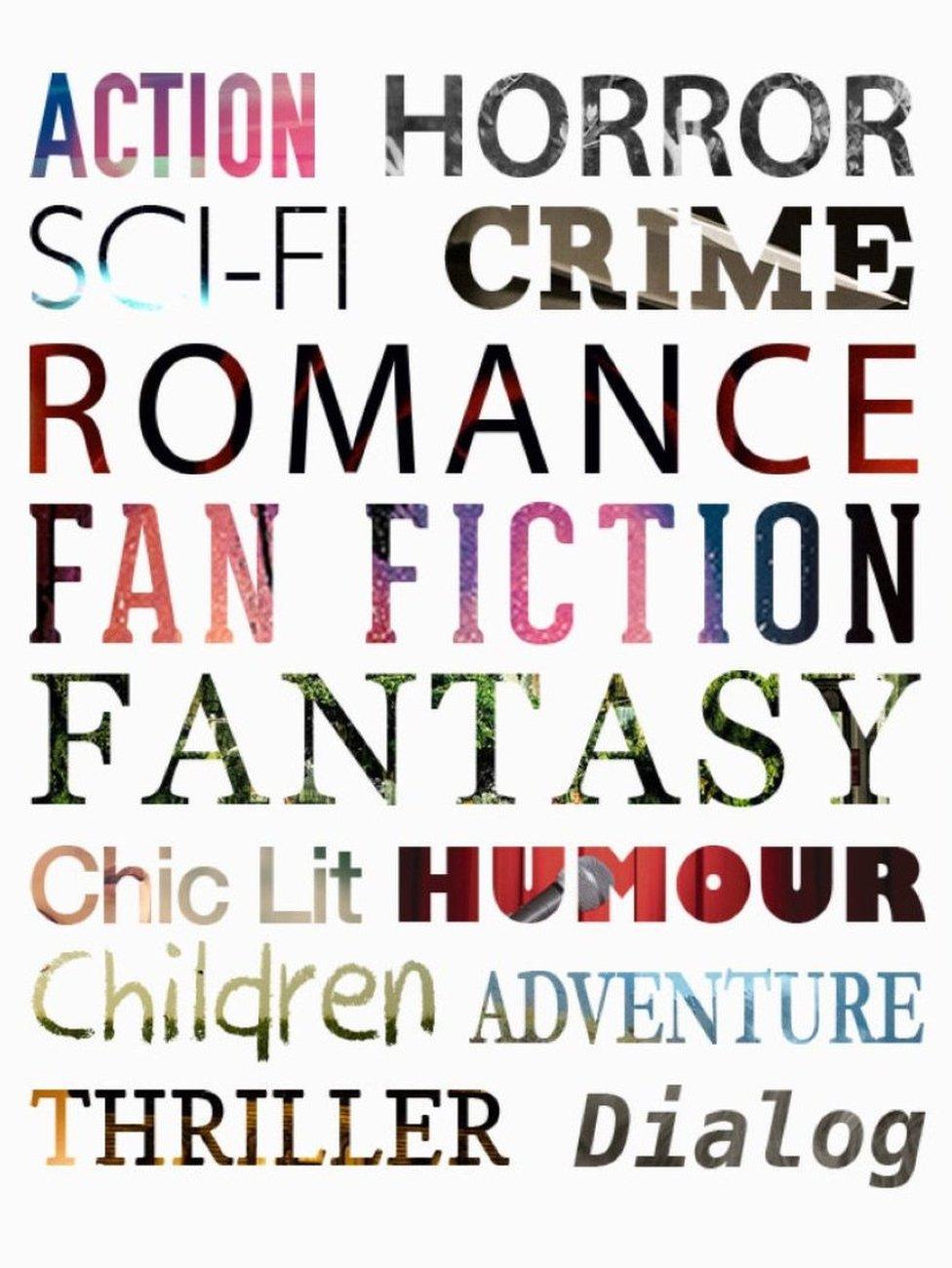
If you see a writer in a movie, most likely she (or he) will be tapping on a laptop. But many young writers are doing it on mobile phones, and sometimes in teams.
Daniel, who uses the pen name LisVender, begins the story, which his writing team decides to call A Small Case of Writer's Block.
The tapping of Sara's pen against her glasses became so rhythmic that it sounded like a metronome set to allegretto. She spun in her swivel chair, watching the bookcases in her study swing by. She had to admit it: her story was stuck, her characters were stuck, and so was she.
Ella, pen name Elle, who has 313 stories under her belt, then picks up the tale.
Sighing, she slumped forward, forehead hitting the desk with a thump. How was she going to keep the plot rolling forward, give her characters the development they needed? Her eyes swivelled to the window, the glass frosted over with thin ice. Maybe a walk outside in the cold
At 276 characters, Elle has nearly reached her 280 limit, so she stops mid-sentence and passes the story to the next writer. (You can read the rest of the story at the bottom of this page.)
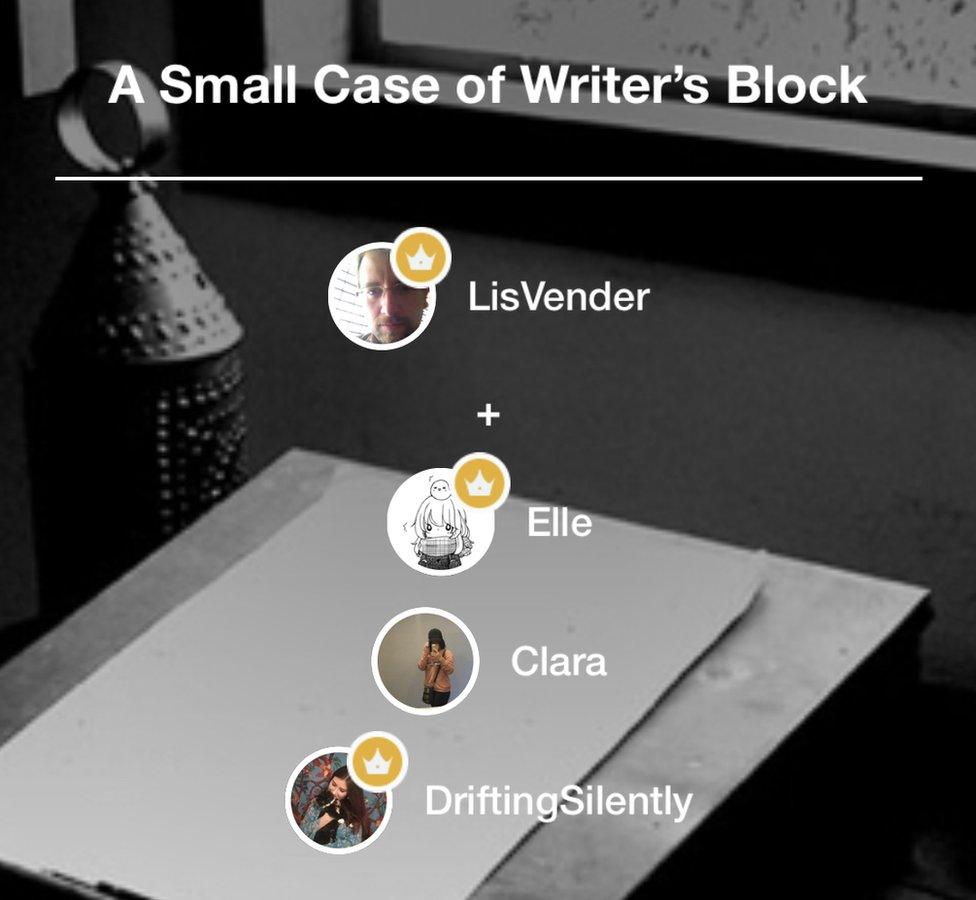
Welcome to the world of Inkvite, one of a number of creative-writing platforms popular with teenagers and young adults in the US. It allows users to share stories, comment on them, and also collaborate.
Here, five Inkvite authors explain its appeal.
Gabriela - pen name, Athalia
I'm a student in Houston, Texas. I've dreamed of being a published writer since I was little.
I've posted more than 390 stories on the Inkvite app in the past two years, specialising in fantasy and science fiction.
We express a lot of our inner turmoil and emotions on the app. It's one of the things that brings us together.
Some writers do this through their fiction, others treat the platform more like an open diary.
I remember one time I saw what my friend Phoenix had written and I knew she was in trouble.
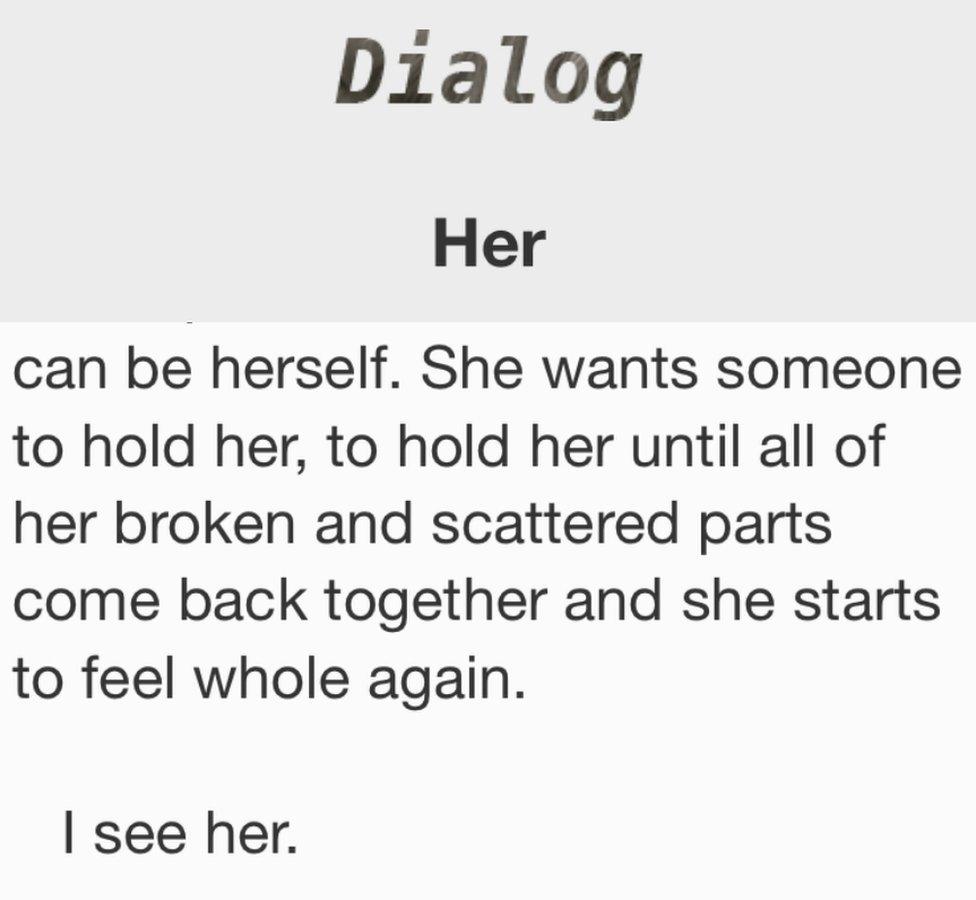
I could tell Phoenix was going through turmoil and serious stress, venting her emotions in the story.
But I could also see that she was reaching out for help. So that's why I dedicated a story to her, for encouragement, which I posted on Inkvite that same night.
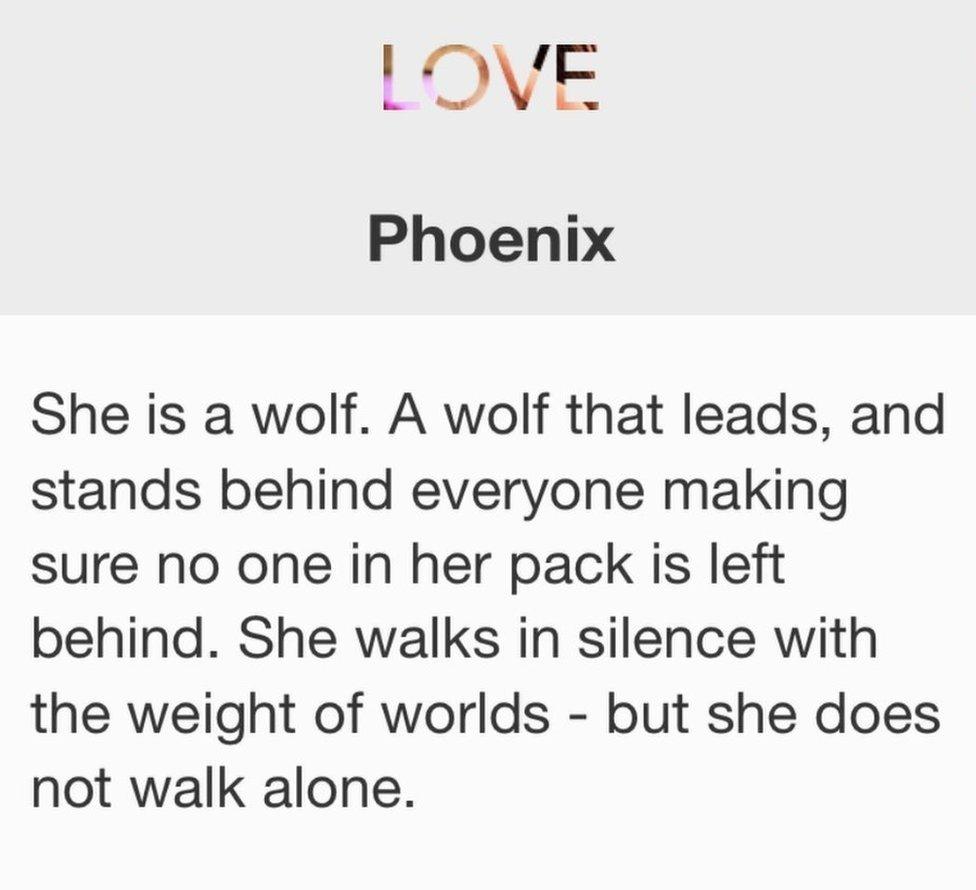
Phoenix messaged me privately on the app to say she appreciated it. We can also leave public feedback on stories.
Inkvite gives you support, both creative and emotional. It's tight-knit.
I think it's cool because we are all these strangers writing on an app, but we have this mutual respect and we treat each other as family.
Yi Ting - pen name, Clara
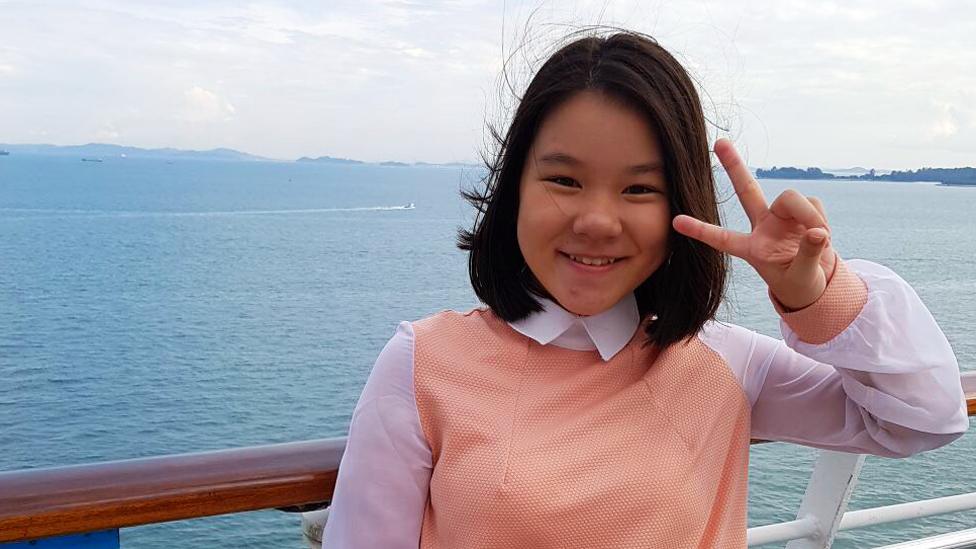
I remember I cried when I read Athalia's writing on Inkvite. She writes updates about her family life and poetry. I wrote messages to support her.
If I read something depressing, I'd message her to say, "if anything happens to you in the future you can always find me and talk to me". I hope she feels better.
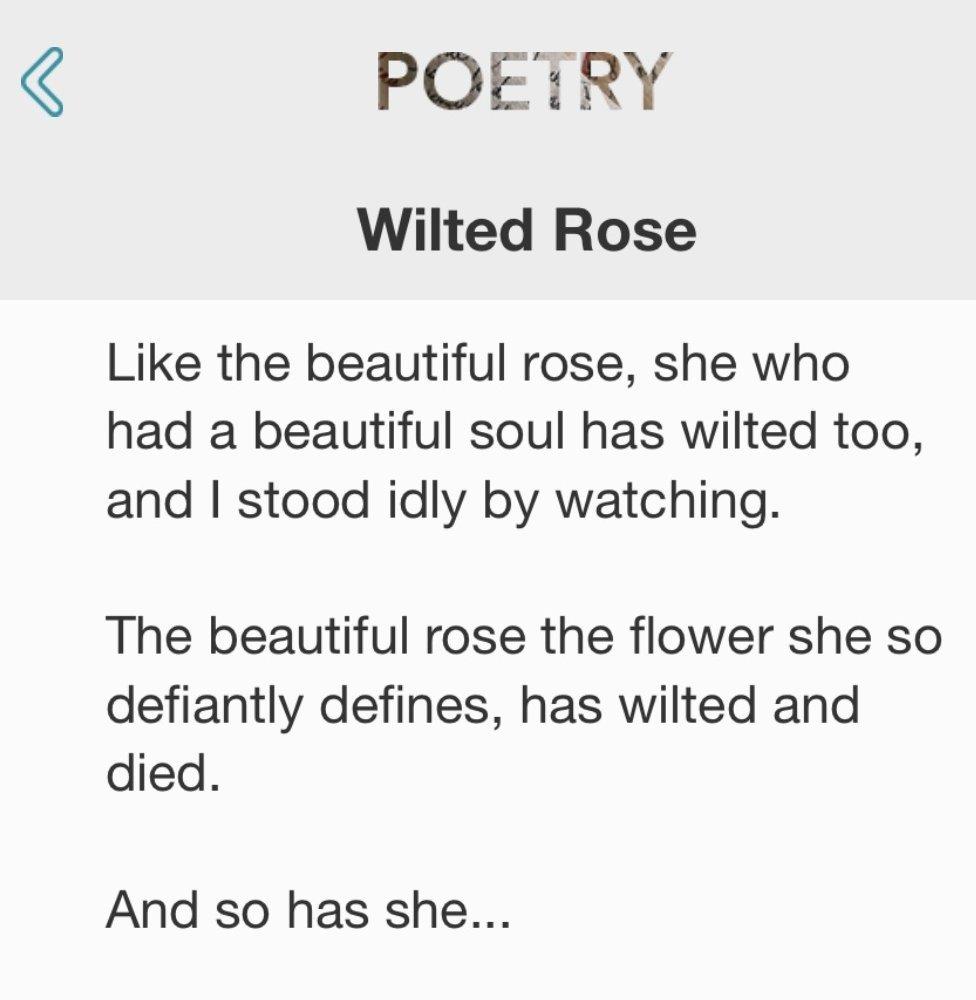
I joined Inkvite when I was 12 in 2016. At first I was still discovering my own writing style. I'm Malaysian and it's a way to improve English. Now I do mainly fantasy and romance. It's nice to have people to support you in their comments - writing is really a lonely path.
I write in pairs, but never a four. It's too crowded. When I collaborate I love writing with Elle. Luckily, because of the time difference, she starts early and I write late at night. I was a fan of Elle's stories and she had been a motivation for me to keep on writing, so I messaged her and I asked for a collaboration.
Ella - pen name, Elle
I started writing when I was 10. I never shared any of my work with anyone, just saved it on a file on a computer. My friends eventually encouraged me to break out of my bubble. From around the age of 14 I started writing on Inkvite.
I moved around a lot in my childhood: Connecticut, New York, New Jersey. I was changing schools all the time. I'm generally shy, making friends was difficult.
Inkvite and its writing community was a constant for me, when everything was changing.

Social writing platforms
Inkvite is only one of a number of apps that enable people to write on their mobile phone, comment on each other's work, and chat publicly and privately. Others include:
Wattpad - Started in 2006 and based in Canada, it has more than 70 million users and 400 million uploaded stories, making it much bigger than Inkvite
Movellas - A platform founded in Denmark in 2009 - it's popular with teenagers and has been used in schools as a way to teach English
Penana - Like Inkvite, it allows for collaborative writing - it also has charts for "most liked" and "most commented" users
FanFiction.net - Created in 1998, it has millions of users, who write stories inspired by TV shows, comics or films

I used to write every night on my mobile after I'd finished my homework.
I admit when I started out, it was a stress release. I like the fact it's anonymous - nobody knows your real name, but they get to know you through just your writing.
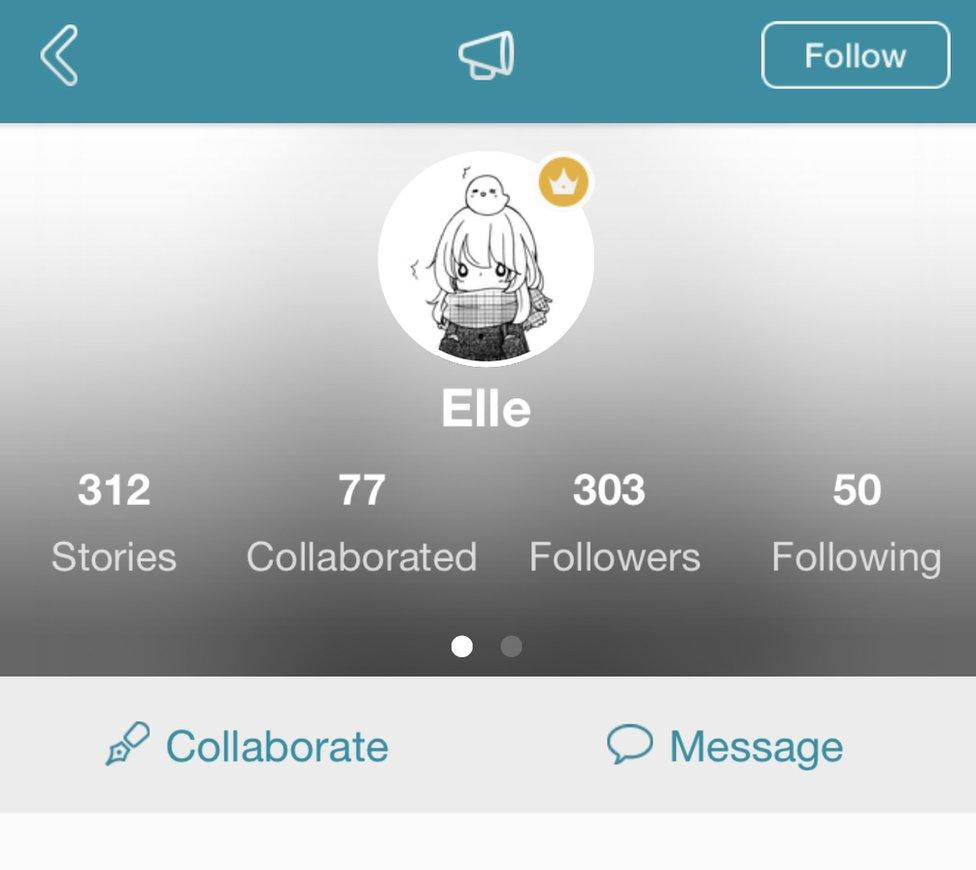
I wanted online relationships to help my writing and I also wanted to support other people on their writing journeys. But I've never met any of my Inkvite friends in real life.
Now I'm in my first year of college in Georgia. My time is more scattered but I still to prefer to write at night, in my dorm.
I used to be more idealistic, I wanted to be a published writer. It's kind of intangible, but I know I can self-publish.
Daniel - pen name, LisVender
I live in Riverbank, California.
I work for a trucking company, in the back office. I do the billing.
I love fantasy and horror, so naturally I'm a Stephen King fan.
I'm 38, probably one of the oldest people on the app.

How Inkvite began
Launched by London-based entrepreneur Chris Helm in 2015
Inspired by writers' camps run by hip-hop artists, where a group of writers works on lyrics, and the artist curates the results
The app has been downloaded more than 85,000 times, generating 110,000 stories
Four out of five users are female and the largest age group is 14-18
Young writers are used to contributing to threads on their phones, Helm says, so this way of writing comes naturally to them

Inkvite works really well because it feels like you are getting out a quick text, or a tweet or something. You get an idea in your head, you can be standing on a bus, or on a break at work, when an idea hits you. You don't have that interval where you are staring at the keyboard or blank page.
It appeals to that smartphone psychology, there are notifications on your phone, the app tells you when it's your turn on a story - when you see that little red dot with the number on it, you go, "Oh I need to do that."
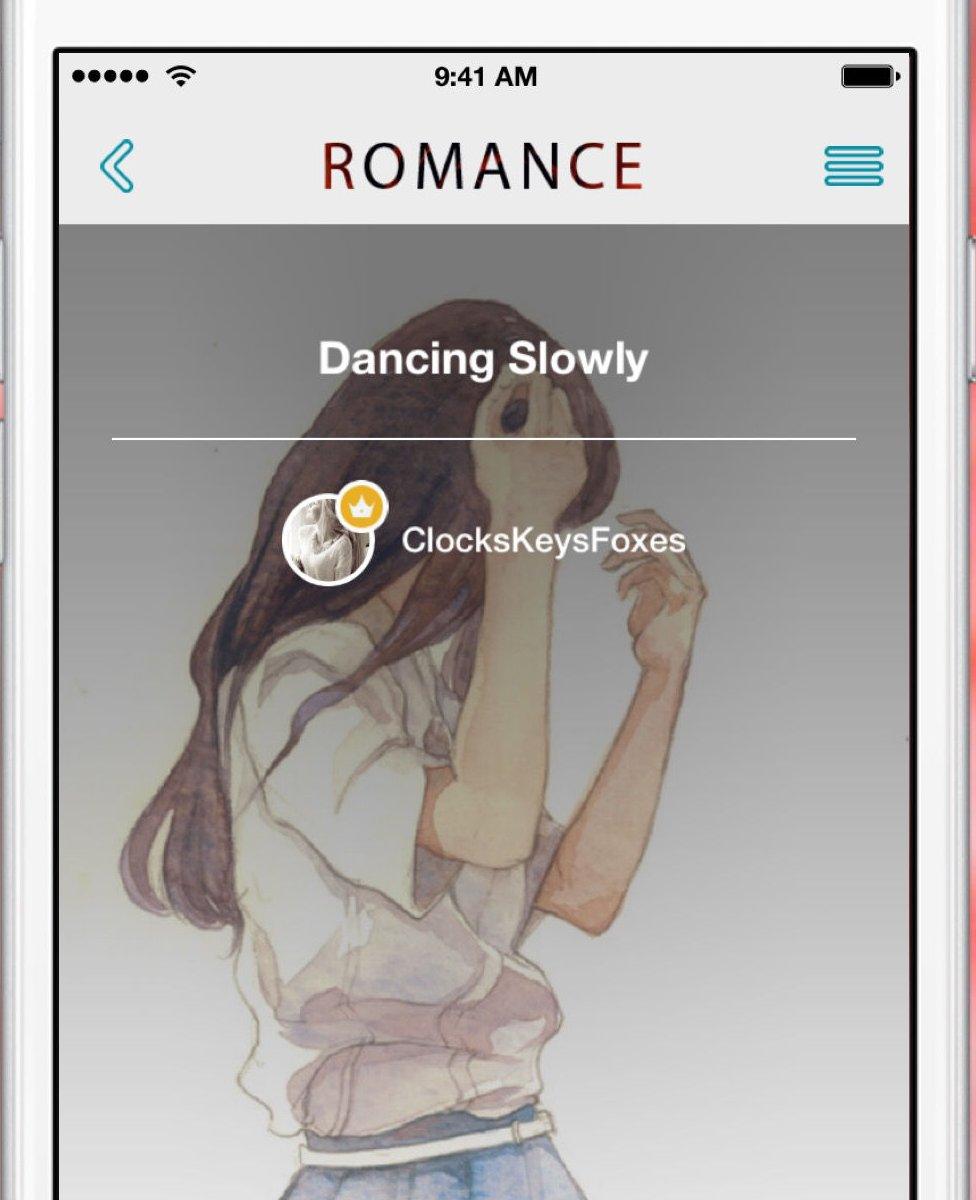
When you are writing on your own, linear fiction, ideas go up like tent poles. But when you write in a team, things can go in a completely unexpected direction.
It's a great thing to relinquish control of writing.
Sometimes you get a new perspective on the story that makes it exciting. Someone might provide an insight into a character that you had not considered. There's a lot of opportunities to surprise each other.
Melanie - pen name, DriftingSilently
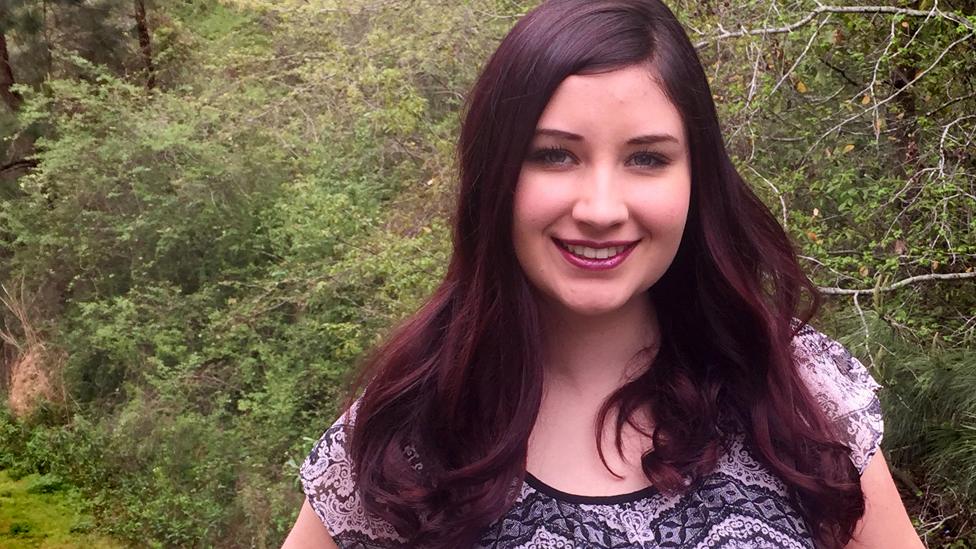
I was drawn to Inkvite because I wanted to write things that I didn't necessarily want to have my close friends read.
I was a teenager when the app started, and loved being able to instantly connect with people who were different ages and from other parts of the world than me. I could share my work with people without questions like, "Is this character me?" or "Why is this so dark/weird/etc?" that I would have got from sharing fiction over a personal blog.
The app is a good way for me to watch how I've grown as a writer and person. I've since deleted some of my more juvenile works, but it's a way to humble myself. I can't act like I'm better than kids on the app, because they can scroll back on my profile and read some angsty thing I wrote in 2012.
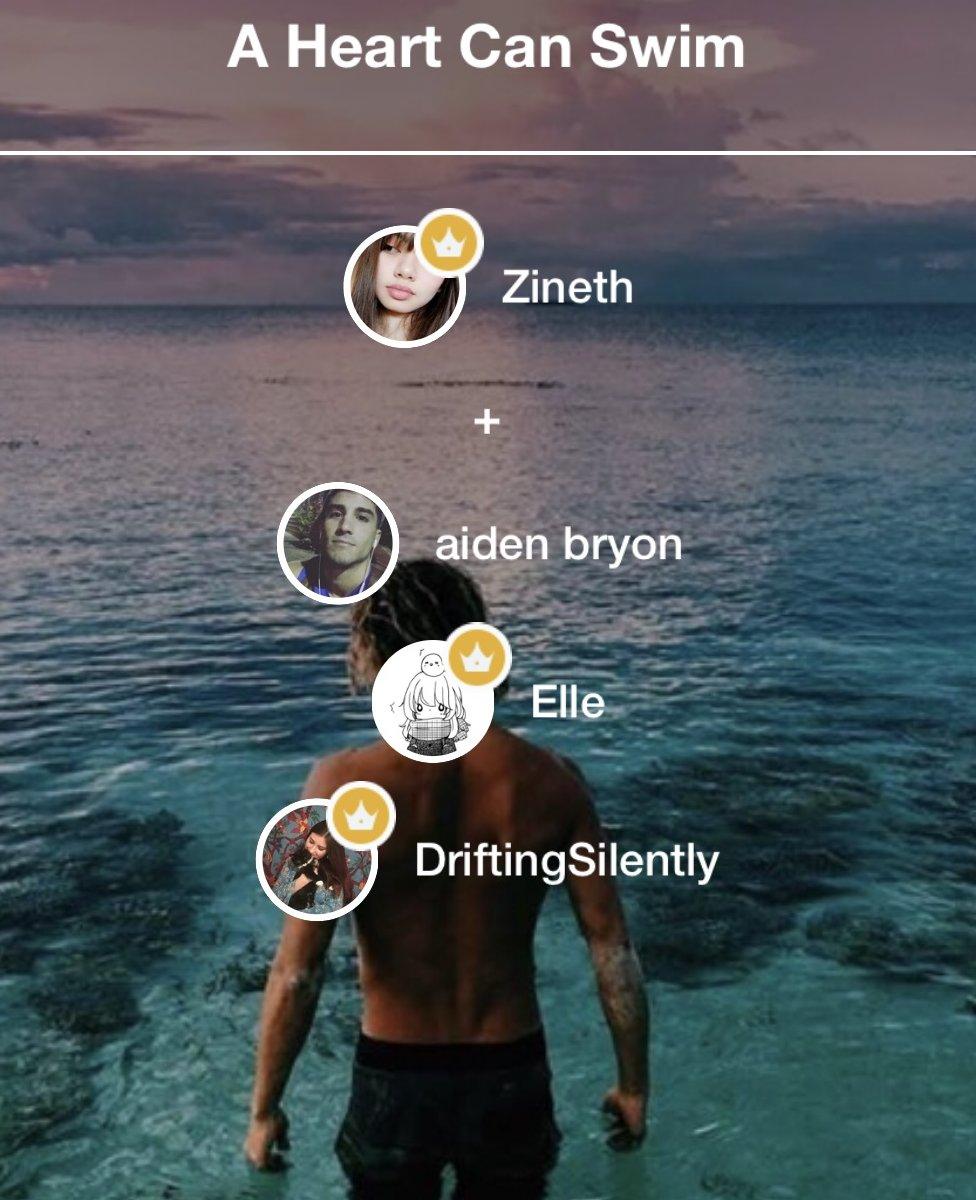
When I was posting regularly, it was nice to be able to see a kid's one-paragraph story about their day at school next to my sonnets, and my stories next to those of someone twice my age.
I started writing because I have a lot of creativity that I wanted to share, and because it was nice to have my thoughts validated as "written work".
I stayed with writing, and the app, for the deeper relationships that can form from sharing ideas.

Here's the ending of A Small Case of Writer's Block, with contributions from Clara and Melanie.
[maybe a walk in the cold...] would spark something. Indeed, the cold air untangled some of her messy thoughts. The trees swayed in the wind, and the sky was grey. Her story was set in the cold weather, too - which she could relate now as her fingertips froze. She wandered in the streets, dreaming of a
brilliant finish to the chapter she'd been working on for so long. As Sara watched the first snowflakes of the season begin to drift down, her thoughts fell into place as well. She marched back inside. Sometimes all it took was a breath of crisp air to freshen her mind.
Dougal Shaw is on Twitter: @dougalshawBBC, external
Join the conversation - find us on Facebook, external, Instagram, external, YouTube, external and Twitter, external.
